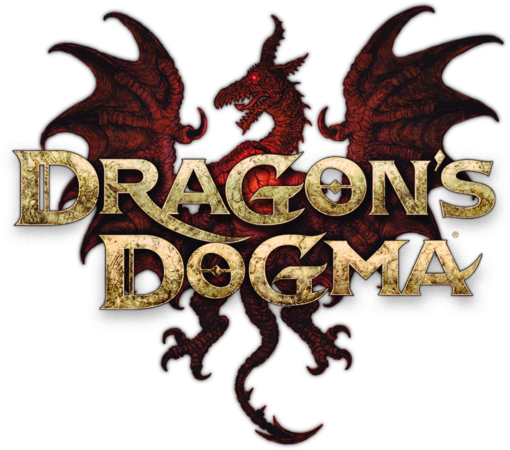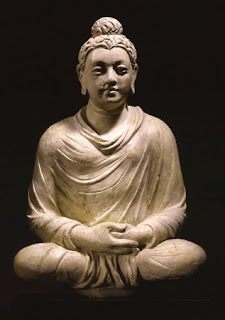
Now for the most part, Capcom have done a pretty good job of it. Instead of the team focus of many Japanese role players, your character is the main character. The game is about YOUR struggle against the dragon of the game's title. There's no turn based combat here, you hit a button, you whack a beastie. Like Skyrim, you have a large open world to explore, and a ton of quests to do, which can be done for the most part in any order, making it a non linear experience. The landscape of Gransys, the country in which the game takes place, evidently takes it's cue from medieval europe with it's knights and castles. The beasties are not your usual made up baddies, but have been taken from european mythology. Which leads to many a great battle against harpies, griffons and even chimera. All the people you meet speak like they've just spent the day at Warwick Castle.
| Gran Soren, the beating heart of all.. hang on, no I'm in England. |
At first glance, you would be fooled into thinking that Dragon's Dogma was made in the West rather than the East. I mean the plot sounds like a lot of the monster myths I read as a kid. Dragon shows up wrecks the place, nicks your heart, you have to kill him to get it back. Heck, stick a damsel in distress in there somewhere and I'm playing the role of England's patron saint. So where does it go wrong? What betrays it's Eastern roots? Well, to do that, I have to go into a bit of depth into the plot. Because the game has only been out a month or so, I have to make a certain announcement.
THE REST OF THIS BLOG POST CONTAINS MASSIVE SPOILERS.
| Thinking about it, I should have used a Biohazard sign. |
Ok, so if you're reading this far then you've either finished the game or don't paticulary care about it. Or, you might not play games and just be reading this because you hit the "Next Blog" tab at the top of the screen and carried on reading because you were curious where this was going. Right. Here goes then.
Try as we might, what we think and do is influenced by our culture. Religion has played a role in shaping cultures across the world, influencing architecture, holidays, heck, even swearwords. This comes through in our works of art, movies, literature and even games. The country of Gransys has a major religon, The Faith, who's adherants follow The Maker. So far so western. This faith displaced the worship ofindigenous polytheistic nature gods, much like in europe. So far so good then. But it's the main plot that betrays the game's Japanese roots.
According to game lore, a Dragon shows up, wrecks some stuff, nicks someone's heart. This person is The Arisen, and they are drawn to the dragon to slay it. But later, could be years, decades, or generations, another one will show up, nick someone's heart...you get the idea.
However, there's more to it than that. The Dragon even hints at it during your encounters with him, when he says, "Surpass me, if you would truly be the one to take up the endless chain..." It's only at the end of the game that the Japanese influence comes through. When The Dragon dies, it turns out things are not quite as simple as you thought. All hell breaks loose (literally) and a new challenge awaits you, even though you have your heart back. A great portal has opened to the unknown.Venturing into it your followers, the pawns, who come from a mysterious netherworld called The Rift, will mention that this is a gateway between worlds. One pawn in particular reveals there is a way to acess this gateway, and when you open this portal, the truth about The Dragon and your role as the Arisen is revealed.
So off you pop. You open the portal, dive right in and go to get your answers. You find yourself in a mysterious place, where you meet a bizzare person known as the Senechal, who promises answers to your questions if you can defeat them. Upon defeat, you get to question them.
The Senechal is the keeper of the world, a steward who watches over it. The Senechal was once an Arisen like you. They too defeated the Dragon, they too had to travel through the portal, they too had to defeat the Senechal to get their answers. It is the Senechal that sends the Dragon into the world, to temper the will of an Arisen so that they can take the Senechals place, in a loop that will never end. This is not the only world this happens in either- there are many worlds, all with a Senechal who sends a Dragon. And who is the Dragon? The Dragon is any Arisen who fails to prove their will to the Senechal.
So, we have multiple worlds, people dying and coming back as something else, and a cylce that goes on forever. This sounds very familiar...
Yep, a lot of the concepts in Dragon's Dogma are Bhuddist. For all it's Western gameplay trappings, it's still a very Eastern game in it's philosophy. It's still an excellent game, (I finished it twice and got all the trophies) but it's Western only in gamepay style. With excellent sales it looks like we may be seeing more of the world of Dragon's Dogma. If you're a fan of RPG's like Monster Hunter, Demon's Souls, Skyrim et al, I'd give it a go. Be prepared to be a little confused by some of the concepts though, as they hail from a different shore.
Linkage
Video of the Last Battle
Dragon's Dogma Wiki on the Senechal
Dragon's Dogma official site
Dragon's Dogma Wiki entry on The Dragon

No comments:
Post a Comment